news
Update : Medical feat! Lagos hospital performs successful open-heart surgery on 13-day-old baby
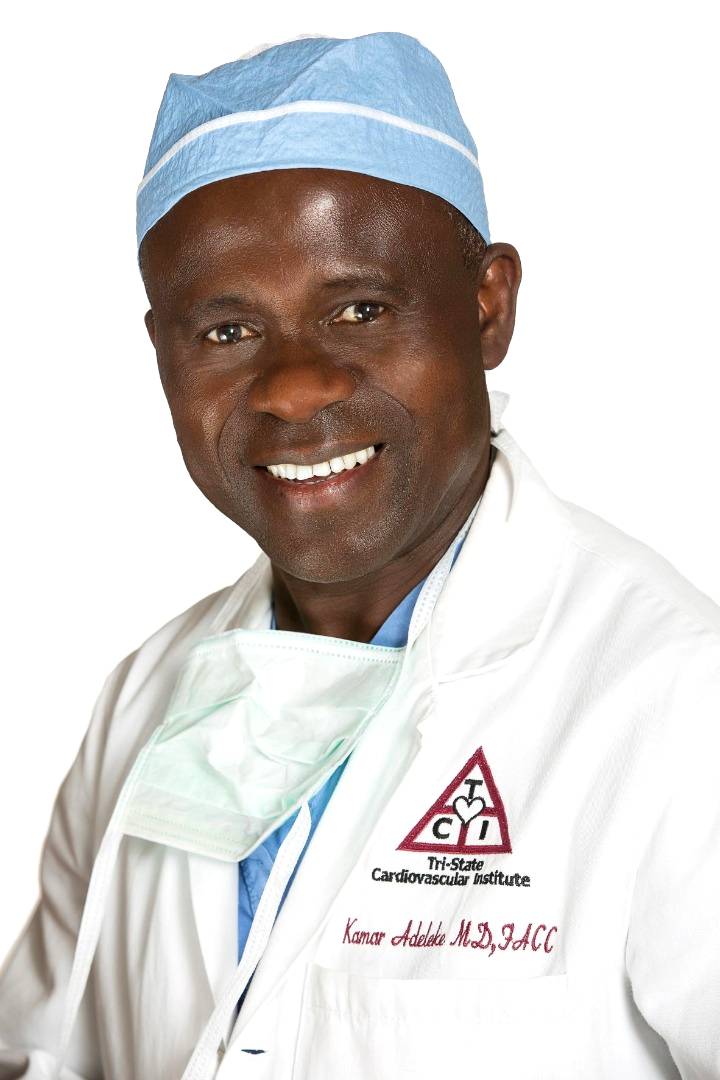
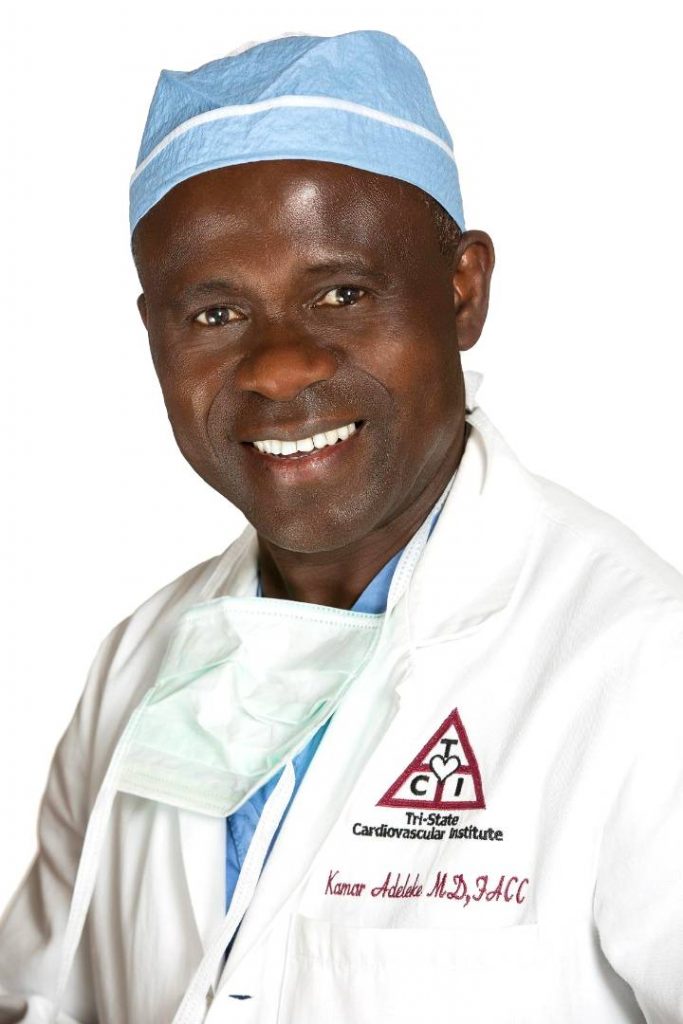 ,,Complicated procedure lasted 19 hours
,,Complicated procedure lasted 19 hours
,,,Baby was born with fatal congenital abnormality of the heart
Lagos-based Tristate Hospital, Lekki, has successfully carried out complicated open heart surgery on a 13-day-old baby. The unnamed baby was born with a rare congenital abnormality of the heart known in medical parlance as “transposition of the great arteries”.
In layman’s terms, the two major arteries leaving the baby’s heart were transposed (wrongly connected) to the lower chambers of the heart (ventricles).
Our correspondence gathered that the life-saving procedure, known as an “arterial switch operation” – a complex type of pediatric cardiothoracic surgery, lasted 19 hours, and was carried out by a Nigerian team of specialists. Only the most skilled paediatric surgeons in the world are known to carry out the procedure successfully.
The medical team was led by Professor Kamar Adeleke, a professor of medicine/cardiology, interventional cardiologist, and the Founder/CEO, of Tristate Healthcare system – a conglomeration of best-in-class super-specialty healthcare providers.
Speaking on the medical feat, Adeleke, who is the President/CEO, Tristate Cardiovascular Institute, and Chief, Division of Cardiac Catheterization and Interventional Laboratory, University College Hospital, Ibadan, Oyo State, said the arterial switch operation is an open-heart procedure that is done within two weeks of life or it will be too late.
He explained that as a result of the abnormality, blood containing oxygen from the baby’s lungs was being pumped back into the lungs, while blood that lacks oxygen was pumped throughout the body.
“We did an arterial switch in a 13- day- old baby. Normally, the heart has two sides; the right side takes in blood from the organs of the body. This blood is devoid of nutrients, and from here the blood is pumped into the lungs where it is oxygenated and purified and then transported into the left side of the heart where it is pumped to all parts of the body.
Adeleke noted that normally, the left side of the heart pumps out 4-6 litres of blood every minute.
“This baby was born with a badly structured heart. What happened to this baby was that the left and right structures were switched, so the baby was not getting any purification of the blood. The mortality of this condition is 100 percent.
“What we did was to restructure the heart in addition to a bypass. All the blood vessels coming from the wrong sides were correctly repositioned. It was a complex surgery that took from 10.15 in the morning till 5 am the following day.”
Noting that congenital heart defects occur in about 0.01 percent of the Nigerian population, Adeleke argued that the feat is significant in the sense that the condition was being tackled locally for the first time.
“These cases are usually hopeless except flown abroad for surgery and they may still die eventually. It is a huge achievement we have done it here, if we can achieve this in Nigeria, there is nothing that we cannot do medically.
On a scale of 10, the complexity of the surgery is about 9, so we are moving forward.
“Fortunately, this type of abnormality is very rare in- utero (in pregnancy). The human heart is very complex and is completely formed at six weeks of gestation even before the woman may realize she is pregnant.
“We advise women that when you know you’re likely to get pregnant, you don’t do certain things like smoking cigarettes, taking drugs carelessly, try to stay away from stress, and eat well. However, the abnormality may not even be because the mother did something wrong. It could just be an unfortunate occurrence.
Adeleke, who pioneered the Tristate Cardiovascular Institute in Wilmington, Delaware, and later founded First State Diagnostic Centre, Peninsula Medical Associates, and Wilmington Cardiovascular Associates, called for an urgent need to establish paediatric cardiac centers in Nigeria, and said the best time to prevent any type of congenital anomaly is before conception.
“It is important that we investigate every pregnant woman at multiple levels. There is what is known as the level 3 ultrasound that detects all these abnormalities. Some congenital heart defects can be detected and corrected before the baby is born, but if it cannot be done before birth, it is essential that the mother should, at least know, and be prepared for it.
“What we need to do is reduce infant mortality by paying attention to the care of the mother so that before and during pregnancy, abnormalities can be detected and addressed early. If we invest in the mothers, we are going to be saving a lot of money in the future. Things as simple as lacking the right vitamins and developing a nutrient deficiency can cause neurological problems after delivery, but if these nutrients are given during pregnancy it will avoid potential anomalies.”
Every newborn must also be properly evaluated. “Take your stethoscope, examine the baby and if you detect a heart murmur, then you can quickly do the ultrasound. It takes just 30- 45 minutes to do this you can then follow up on the baby.
“All we need is proper evaluation of the baby. Let’s take care of the mother during pregnancy. The routine should be that any woman that is pregnant should be automatically covered by insurance. By doing that, we are investing in the baby even before it is born,” Adeleke stated.
Lamenting that Nigeria currently has only one pediatric intervention cardiologist, Adeleke described it as grossly inadequate.
“We must concentrate on manpower. To bring foreign manpower is a fortune and is not sustainable. We have several pediatric cardiologists, who can pick up these defects, but the services and skills of a pediatric intervention cardiologist are required to fix the problems. How can only one pediatric interventional cardiologist attend to over 200 million Nigerians?
“Right now we have about seven intervention cardiologists in Nigeria and five of them are in Lagos State. Tristate alone has two; certainly, we need to be serious about manpower. Who is going to cure you if you cannot fly abroad within 60 minutes if you have no competent specialists on the ground here in Nigeria?”
Noting that one of the goals of the Tristate Hospital was to contribute to the growth of medical care in the country, the CEO remarked that what is required is the improvement of the environment so that those going abroad will be encouraged to stay back.
“We are prepared to turn the brain drain into brain gain. Nigerian medical specialists abroad want to return to Nigeria, but the facilities and infrastructure must improve. If we can give more opportunities for training, we will get more of these specialists. I am bringing another interventional cardiologist from abroad to Tristate, once we are training more of our own people, we will turn the tide against brain drain.”
“Eleven years ago, the West African College of Surgeons took the training of cardiothoracic surgeons to Ghana because there were no reputable facilities in Nigeria, and there was nobody to do the training.
“Then in 2021, I received a letter from the College. Tristate was doing 70 percent of open heart surgeries in Nigeria and has done more open heart surgeries than the whole of Ghana as a country. The College now wants to bring the training of cardiothoracic surgeons back to Nigeria, so they told the three institutions that are doing the surgeries continuously to come together and form a training institution.
.“The three institutions are the Lagos State University Teaching Hospital, LASUTH, Obafemi Awolowo University Teaching Hospital Complex, OAUTHC, and Tristate to form the training institution to be known as LOT. We are signing an MoU to this effect and that is huge. It will help us to advance the training of surgeons and that will bring down the cost of training further.
“When we wanted to begin open heart surgery at TriState, the people that could afford the surgery did not want to be our guinea pigs while those that did not have money were ready. At that time, to do open heart surgery cost between N2.0 – 3.0 million. I paid $2,500 for a patient because we had to show Nigerians that we could do this. We had to do it for those that did not have the money. The first 75 cases that we treated either had no money or could only pay the minimum.
“In the first two years after Tristate began doing open heart surgery, we did not make any money. In fact, we could not pay any expatriates because the exchange rate that year went from N175 to N520. There were about 13 of them, but we moved on.
“As of 2021, we had about 124 open heart surgeries, excluding the non-open heart surgeries. The total number of cases that we handled is close to about 600. Now we have seen that the medical tourism story is gradually changing because these medical interventions are being done right here.”
“I want to see the cardiac programme grow. Our aim is to achieve accessibility, affordability, and quality care. We must have a hospital that is within reach of everyone in the country. We started at Babcock University Teaching Hospital, Ogun State, and then went to Ado Ekiti at the Afe Bablola University, ABUAD, and after a year, we had done about 36 surgeries. The following year we were at Reddington Hospital and did the first open heart surgery there, and then continued.
“At the Duchess Hospital, Ikeja, Lagos State, the 5th floor is called the Duchess-Tristate Heart Institute. We moved to the Lekki on December 9, 2021, put everything together in the operating room, and two months ago, we began open heart surgery here.
“In two months we have done 20 surgeries. The first case we had was a 15 -year-old boy called Kassim. He is alive and well. His surgery started at 5 pm and ended at 5 am the following day. The youngest procedure that we have done was on a 13-day-old baby. It is also the longest. We started at 10 15 am and finished at 5.15 am the following day.”
The professor of cardiology Close to seven specialist centres in Nigeria are now carrying out open heart surgery. This is the beginning for Nigeria and if we do all these things well we do not need to go abroad again. What people thought was impossible is actually possible. Our goal is to save life first. Our mission is being accomplished.
“Most of the lives of people we have saved are those unable to pay out of pocket, that is why health insurance is essential. Cash and carry healthcare must go. Nigeria is better off medically today than in the recent past, this is reality. Give us another five years, and the health care system will be booming.”
news
Just In : Awujale of Ijebuland,Sikiru Adetona, dies at 91

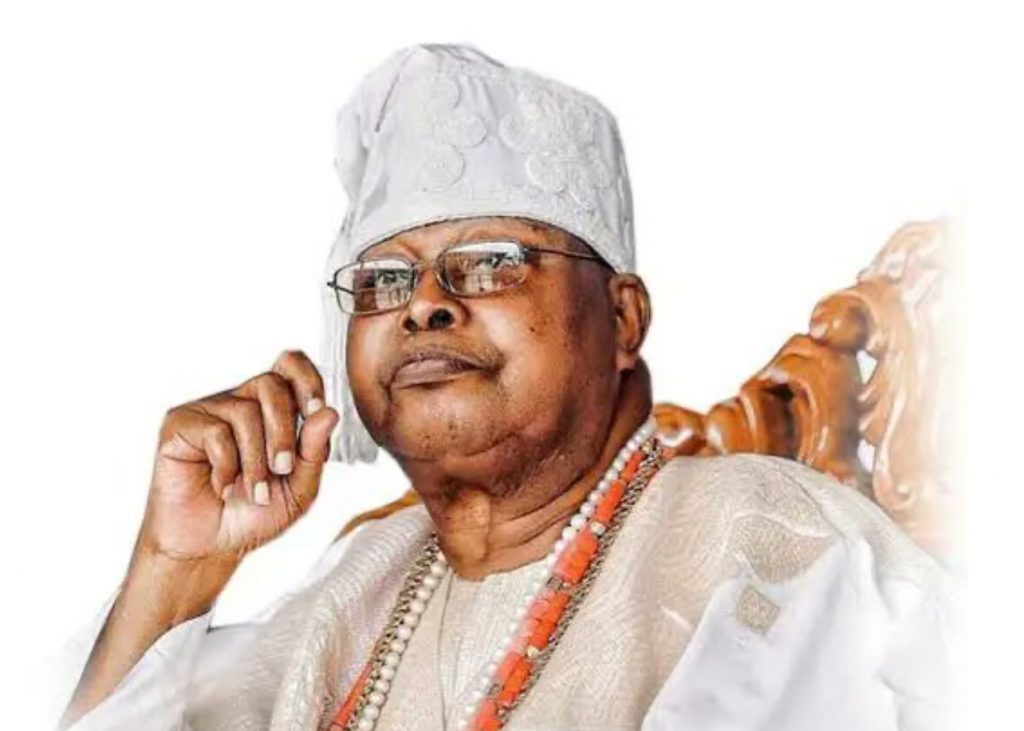 The Awujale and paramount ruler of Ijebuland, Oba Sikiru Kayode Adetona, has passed away at the age of 91.
The Awujale and paramount ruler of Ijebuland, Oba Sikiru Kayode Adetona, has passed away at the age of 91.
The respected monarch reportedly died on Sunday, just hours after the announcement of the death of his longtime friend and former President, Muhammadu Buhari.
Mourning his passage, a prince of Ijebu, Prince Adedoyin Alatishe wrote on X, “Baami Ogbagba agbatewole , Erin wo. Omo anikilaya saagbu.”
Adetona, who ascended the throne in 1960, was one of Nigeria’s longest-reigning traditional rulers and widely revered for his contributions to the sociopolitical development of Ijebuland and Ogun State at large.
news
Breaking: Former president Muhammadu Buhari has Died at a clinic in London
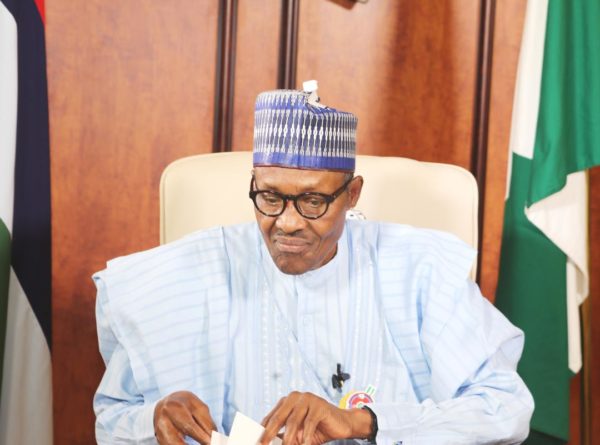
 Former president muhammadu Buhari has died at a hospital in London this afternoon according to the family, He was former military head of state in 1983.
Former president muhammadu Buhari has died at a hospital in London this afternoon according to the family, He was former military head of state in 1983.
The family of the former president has announced the passing on of the former president, Muhammadu Buhari, GCFR, this afternoon in a clinic in London. May Allah accept him in Aljannatul Firdaus, Amin.”
Detials later
news
Breaking : Tinubu returns to Abuja tonight after diplomatic visits to Saint Lucia, Brazil,Says Onanuga
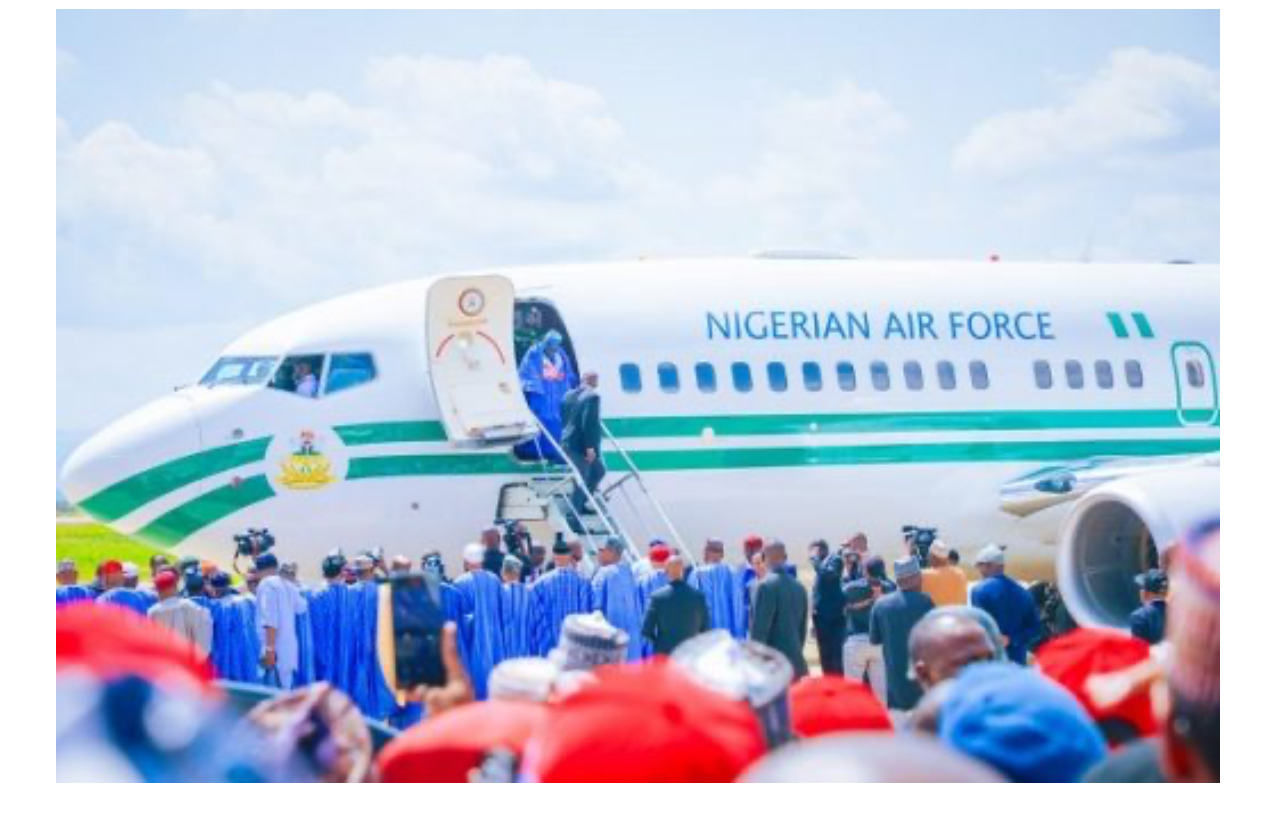
 President Bola Ahmed Tinubu is expected to arrive Abuja later tonight following a two-nation diplomatic tour that took him to Saint Lucia in the Caribbean and Brazil in South America.
President Bola Ahmed Tinubu is expected to arrive Abuja later tonight following a two-nation diplomatic tour that took him to Saint Lucia in the Caribbean and Brazil in South America.
His return was confirmed in a message posted on Saturday afternoon by the Special Adviser to the President on Information and Strategy, Mr. Bayo Onanuga, on his verified X handle, @aonanuga1956.
“President Bola Ahmed Tinubu returns to Abuja today after his two-nation visit to Saint Lucia and Brazil,” the presidential aide stated.
The President departed Nigeria on Saturday, June 28 for what was described as a strategic outreach aimed at strengthening ties with regions historically under-engaged in Nigeria’s diplomatic matrix.
His first stop was Saint Lucia, where he made a historic visit to build new ties and explore emerging partnerships with Caribbean states.
While in Saint Lucia, Tinubu interacted with regional leaders under the Organisation of Eastern Caribbean States (OECS), reinforcing Nigeria’s growing interest in Caribbean diplomacy and South-South cooperation.
He subsequently proceeded to Brazil to participate in the 17th BRICS Summit held in Rio de Janeiro.
On the sidelines of the summit, President Tinubu held a bilateral meeting with his Brazilian counterpart, President Luiz Inácio Lula da Silva.
The leaders co-chaired the Nigeria-Brazil high-level bilateral meeting , where they discussed mechanisms to boost trade, infrastructure financing, and cultural cooperation between Africa’s most populous country and Latin America’s largest economy.
With the President’s return, focus is expected to shift to domestic engagements and follow-up actions on the diplomatic and investment commitments made during his foreign tour.
-

 news5 years ago
news5 years agoUPDATE: #ENDSARS: CCTV footage of Lekki shootings intact – Says Sanwo – Olu
-

 news2 years ago
news2 years agoEnvironmental Pollutions : OGONI COMMUNITY CRIES OUT, THREATENS TO SHUT DOWN FIRSTBANK,SHELL OIL COMPANY OPERATIONS FOR NOT PAYING COURT AWARD
-

 lifestyle5 years ago
lifestyle5 years agoFormer Miss World: Mixed reactions trail Agbani Darego’s looks
-

 health4 years ago
health4 years agoChairman Agege LG, Ganiyu Egunjobi Receives Covid-19 Vaccines
-

 lifestyle4 years ago
lifestyle4 years agoObateru: Celebrating a Quintessential PR Man at 60
-

 health5 years ago
health5 years agoUPDATE : Nigeria Records 790 new cases of COVID-19
-

 politics3 months ago
politics3 months agoBreaking : Oborevwori , Okowa others dumps PDP, defects to APC
-

 news2 months ago
news2 months agoBREAKING: Tinubu swears in new NNPCL Board


